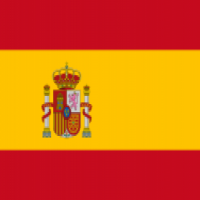Summary:
A Spanish start-up that designs and produces new solutions to refrigerate on-board electronics offers its expertise and technology to participate as the thermal management partner in projects related to drones, aeronautics, automotive or space through research or technical cooperation agreements or commercial agreements with technical assistance.
Description:
Spanish start-up based in Madrid. Founded in February 2017. Its team includes now 8 engineers working in the development and manufacturing of refrigeration devices for electronics based on plasma.
The company has been awarded with grants at regional, national and European level, including a Horizon 2020 SME Instrument phase I in September 2019. In addition, they are Alumni of the European Space Agency programme, ESA-BIC and have been accelerated by Airbus in their programme Airbus Bizlab.
Their technology merges three main engineering areas:
- Electronics. A power supply is needed to create the plasma. The conventional converters had a performance of 56%, so they develop their own power supply with space technology (that is why the company was incubated in the ESA-BIC programme), having reached a 96% of performance.
- Materials, using new materials and alloys that can give the lightness and strength needed for their devices, and also new manufacture techniques as micro-welding, or additive manufacturing.
- And thermal and fluid dynamics, to optimize the heat exchange of the devices.
They have a patent on their technology and keep improving it.
Their devices are much lighter than current technologies, like fan assisted heat sinks, or passive heat sinks, and consumes 10 times less energy than Peltier cells. It has no moving parts, and it is completely silent.
With these values, the company is focused in the aeronautical, space and automotive sectors. Because the trend of those markets is using more and more electronics, that are getting smaller and smaller but are more powerful. This increases the thermal density of the electronics, and the actual technologies are not able to absorb this heat efficiently.
They have tested their technology in drones, for cooling down the temperatures of their electrical motors, and in the inside, for the autopilots.
They are escalating their devices; with the current state of their technology they can have devices with a surface from 1 x 0,6 cm to 12 x 12 cm. Moving an air flow from 12 to 1500 l/min. They have designed them modularly, so they can put the devices in series, if the flow needs to be increased in this surface. Also, they can be set up in parallel, to have more surface of refrigeration.
The company offers its expertise and technology to participate in European projects, related to drones, onboard electronics for aircrafts or satellites. Also, for refrigerating electronics on hybrid or electrical cars. Due to the advantages related to weight and silent, their technology is ideal for refrigerating electronics in the cabin, as mission consoles or cockpits.
Their aim in those projects is to develop or adapt their technology for new applications, as the ones mentioned before and, as a result of those projects, to become the vendor for the final product.
In case that the project ends in a mass production product the company would license the technology for that sector, or product.
The following types of cooperation are considered to channel their participation in collaborative projects:
• Commercial agreement with technical assistance
• Research cooperation agreement
• Technical cooperation agreement
Type (e.g. company, R&D institution…), field of industry and Role of Partner Sought:
Type: Industry
Activity: Electronics, drones, avionics, servers.
Role: develop new drones, new electronics or PC,s.
• Research cooperation agreement: the company is looking for technical partners that can join them in a European project to develop their technology with different fluids, gases or liquids, to create powerful heat transfer systems for automotive or space sectors.
• Technical cooperation agreement: for their applications with air, the company is looking for a partner to join forces in a European project to jump from a TRL 6 to TRL 8, helping them to industrialize the device, and finding new markets.
• Commercial agreement with technical assistance: they are also looking for a partner that will support them in the certification of their device and in the sale of the products.
Stage of Development:
Already on the market
Comments Regarding Stage of Development:
Already on the market and available for demonstration.
It has a Minimum Viable Product (MVP), but it is not certified for flight yet.
IPR Status:
Secret Know-how,Patents granted
Comments Regarding IPR Status:
The company has an approved PCT (Patent Cooperation Treaty) patent application. During 2020 they will decide where to set up the patent.
External code:
TOES20200413001








